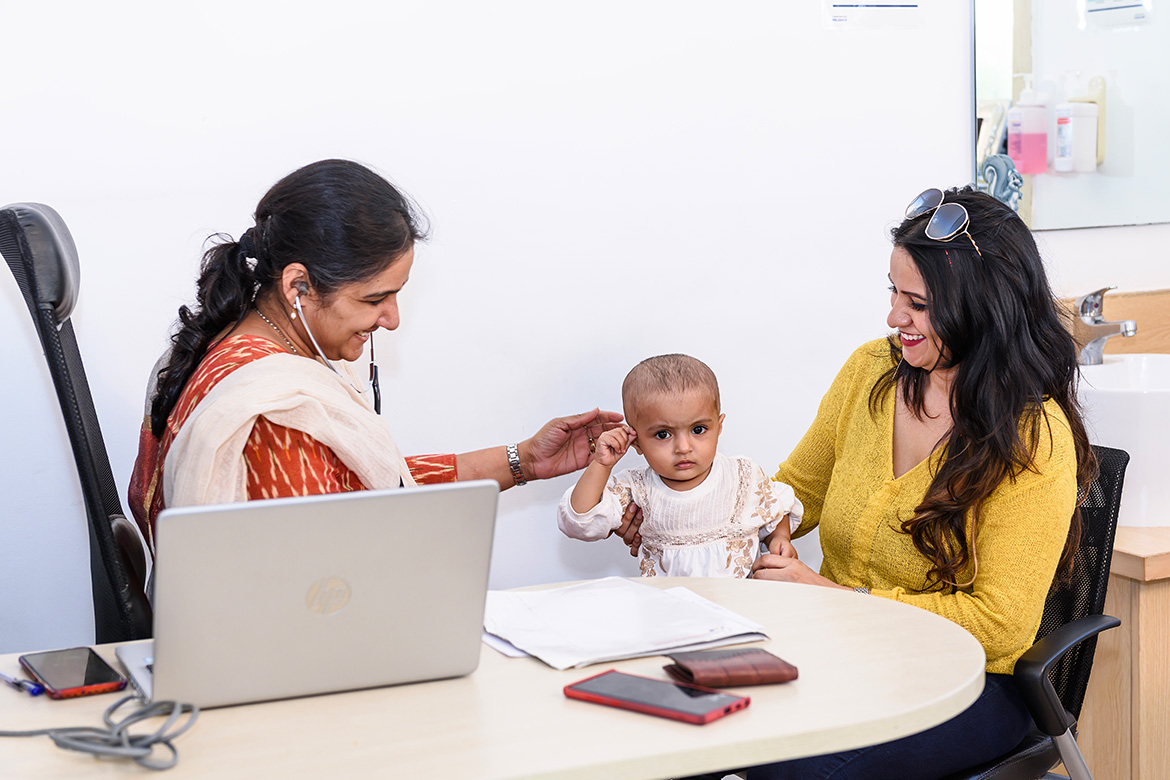Typhoid/paratyphoid fever and malaria are two of the commonest causes of fever seen in children. Despite being very common, errors are often made in diagnosing and managing these illnesses
Enteric Fever (Typhoid and Paratyphoid Fever)
In cases of suspected enteric fever, blood cultures are the gold standard for diagnosis and should be sent prior to starting antibiotic therapy. Widal is usually positive only after seven days of fever and an O and H titre above 1:120 is considered positive.
Current day salmonella is usually resistant to the quinolones and hence these 1st drugs should not be used as 1 line drugs. The third generation Cephalosporins including Cefixime at 20 mg/kg/day and Ceftriaxone remain the standard of care and should be given for 14 days to prevent relapses. Azithromycin is a promising new drug and can be used for seven days as it has a long half life. Combination therapy is not recommended.
Errors are often made in diagnosing and managing these illnesses
Malaria
The gold standard for diagnosis of malaria is thick and thin smear for malarial parasite. It is sensitive, gives information about the parasite species and load, and allows assessment of the response to the therapy. Rapid antigen tests are useful if reliable microscopy is not available.
In case of vivax malaria, the drug of choice is Chloroquine. Fever should be brought down before giving Chloroquine to reduce the risk of vomiting. Chloroquine should be followed by Primaquine for 14 days for radical cure. G6PD estimation should be done prior to therapy. Primaquine is contraindicated in pregnancy, lactation and infants. The use of Artemisinin based combination therapy for vivax is not recommended and can often lead to recrudescence and relapse.
In case of uncomplicated falciparum malaria, Artemisinin based combination therapy is recommended. The drug of choice for combination therapy is Artemether Lumefantrine. Mixed malaria should be treated as for P. falciparum.
Severe or complicated malaria, whether it is P. falciparum or vivax, should be treated as inpatient with parenteral antimalarials. The drug of choice is IV Artesunate given as 2.4 mg/kg at 0, 12 and 24 hours and then once daily as IV push and not as infusion. Once the patient is able to take orally he/she may be switched to the regime used for the treatment of uncomplicated cases.
Conclusions
The gold standard for the diagnosis of enteric fever is blood culture, and for malaria, the peripheral smear. Treatment of choice for enteric fever are third generation Cephalosporins (Cefixime/Ceftriaxone) or Azithromycin, for vivax malaria -Chloroquine and Primaquine, and for falciparum malaria – Artesunate and Lumefantrine.
 Back to Site
Back to Site